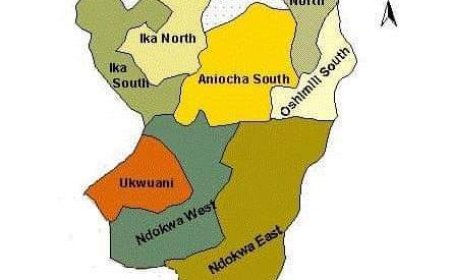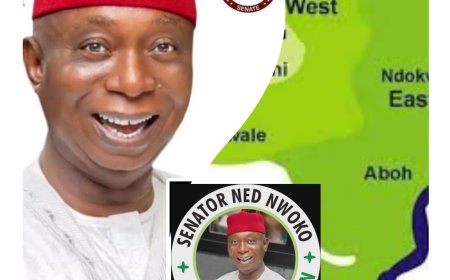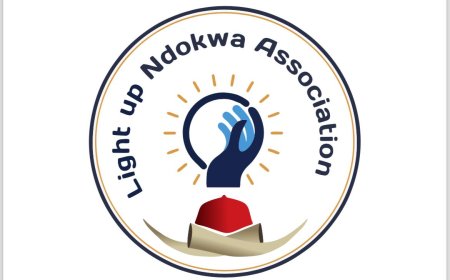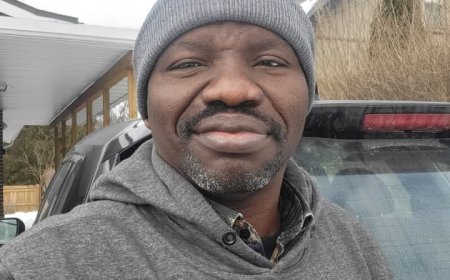ONE LANGUAGE, MANY VOICES: WHY THE ANIOMA 'S STORY IS CHINA'S LESSON FOR A UNIFIED IGBO IDENTITY
One Language, Many Voices: Why the Anioma Story is China's Lesson for a Unified Igbo Identity

In the rich tapestry of Nigerian ethnicity, few debates are as persistent as the question of the Anioma people of Delta State. Are they Igbo? The answer, when we look beyond Nigeria's borders to the world's most populous nation, becomes not just clear, but undeniable. The relationship between the Anioma people and the larger Igbo nation is perfectly mirrored in the relationship between China’s many dialects and their unified Han Chinese identity.
To claim that Anioma is not Igbo is to make a critical error: confusing dialect for a different language, and confusing local history for a separate ethnicity.
THE CHINESE BLUEPRINT: ONE ETHNICITY, A THOUSAND DIALECTS
China is home to dozens of major dialects Mandarin, Cantonese, Hokkien, Shanghainese, to name a few. A speaker of Mandarin from Beijing might struggle to understand a native Cantonese speaker from Hong Kong. The differences in pronunciation, tone, and even vocabulary can be vast. Yet, no one seriously argues that a Cantonese person is not ethnically Chinese.
Why? Because ethnicity is not defined by linguistic uniformity alone. It is anchored in a shared:
• Cultural Heritage: Common festivals, values, food, and traditional attire.
-Historical Narrative: A collective sense of origin and shared historical experiences.
-Written Language: A unifying script (Han characters) that bridges all spoken dialects.
The Han Chinese identity is a powerful umbrella that embraces its incredible internal diversity. It understands that strength lies in unity, not in uniformity.
ANIOMA: THE "CANTONESE" OF THE IGBO WORLD
Now, let's apply this model to the Igbo world. The Igbo language, much like Chinese, is a language of numerous dialects. The speech of an Ngwa man from Abia differs from that of an Nsukka man from Enugu, which in turn differs from that of an Ukuwani man from Delta.
The Anioma dialects Ika, Ukuwani, Enuani, and Ndoshimili are simply some of these many vibrant Igbo dialects. The variations in pronunciation and vocabulary are not evidence of a separate ethnicity, but rather proof of the rich and expansive nature of the Igbo language and culture.
You rightly point out the Ukuwani example: even within Ukuwani, there are variations from community to community. Yet, they are united under the Ukuwani identity because of their profound cultural ties. This is the same principle on a larger scale. Anioma is to Igbo what Ukuwani is to Anioma a cultural and dialectal subset of a greater whole.
TIES THAT BIND: BEYOND THE SPOKEN WORD
The connection runs far deeper than linguistics. The cultural bonds are unbreakable:
-The New Yam Festival (Iwa Ji): A cornerstone of Igbo culture celebrated with equal reverence in Anioma land.
-Traditional Beliefs and Systems: The reverence for ancestors, the significance of “Chi’ (personal god), and traditional governance systems like the council of elders (Ndichie) are identical.
-Kinship and Naming Traditions:The importance of lineage, extended family structures, and naming patterns are shared across the Igbo spectrum.
Our history, from the ancient Kingdom of Nri to the collective experiences of pre-colonial, colonial, and post-colonial Nigeria, is a shared one. To attempt to sever this deep-rooted connection based on a state boundary drawn for administrative convenience in 1991 is to ignore centuries of shared existence.
-CONCLUSION: STRENGTH IN OUR SHARED IDENTITY
The debate itself is a distraction. While we celebrate the unique flavours of our local dialects and histories, be it in Ukuwani, Ika, or Enuani we must not let them become walls that divide us. Instead, they should be seen as threads in the magnificent, colourful fabric of Igbo culture.
China did not become a global powerhouse by fracturing into a hundred ethnic groups based on dialects. It unified under a broad, inclusive identity that allowed for diversity within unity.
The Anioma people are Igbo. It is a statement of fact, history, and culture. Embracing this truth does not erase our unique Anioma identity; it enriches the wider Igbo world with our distinct voice. Just as Cantonese adds its unique melody to the Chinese chorus, so do the dialects of Anioma add their invaluable verse to the enduring story of the Igbo people.
Let us put the debate to rest and focus on building a stronger, more united front, celebrating the beautiful diversity that makes the Igbo nation truly great.
Okom Timothy Ogochukwu
Founder Ndokwa Sons and Daughters
What's Your Reaction?








































